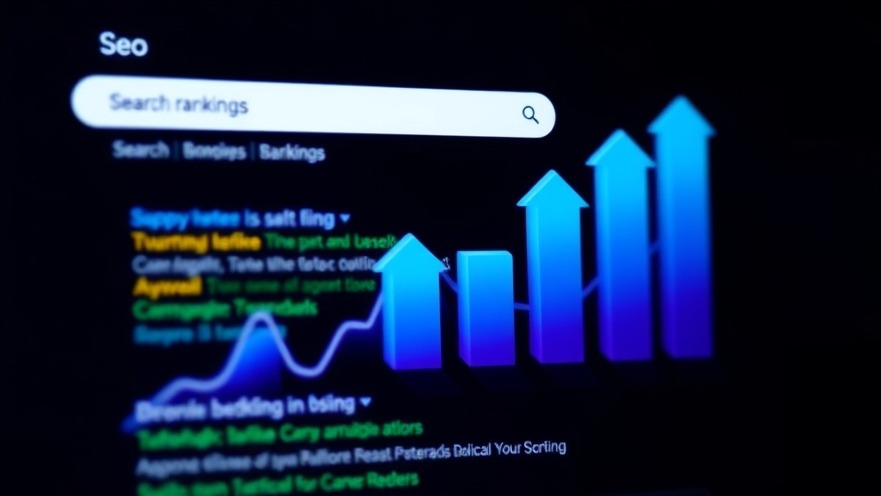Every day, millions of business owners waste time creating content that gets buried by algorithms. They blame the system, complain about low reach, and watch competitors zoom past them. But here's what they don't know: algorithms aren't your enemy—they're your biggest opportunity.
The truth is, algorithms are like invisible employees working 24/7 to find the perfect audience for your content. When you understand how to speak their language, they become your most powerful marketing team. The businesses winning today aren't fighting algorithms—they're partnering with them.
Key Takeaways: Your Algorithm Success Blueprint
Search algorithms reward helpful, relevant content that matches user intent
Social media algorithms prioritize engagement and meaningful connections
Timing, consistency, and audience interaction drive algorithmic success
Keywords and hashtags are the secret codes algorithms use to categorize content
Cross-platform strategies multiply your algorithmic reach
Video content gets 1200% more shares than text and images combined
User-generated content receives 28% higher engagement rates

What Are Algorithms (And Why They Hold the Keys to Your Success)
Think of algorithms as digital matchmakers. Just like a good friend who knows exactly which restaurant you'd love, algorithms study user behavior to deliver the right content to the right person at the right time.
When someone searches "best pizza near me" on Google, the algorithm doesn't randomly pick results. It analyzes hundreds of factors: your location, previous searches, website quality, reviews, and more. Then it serves up the most relevant pizza places.
Social media algorithms work similarly. When Emma scrolls through Instagram, the algorithm notices she stops to watch dog videos, likes travel posts, and follows fitness accounts. So it shows her more content about pets, vacation destinations, and workout tips.
Here's the game-changer: Algorithms prioritize content that generates engagement because their job is showing users content they'll actually interact with. When you create content that people love, algorithms notice and reward you with more visibility.
The Search Algorithm Success Formula
Search engines like Google use over 200 factors to rank content. But three elements matter most:
Relevance: Speaking the Algorithm's Language
Keywords are like GPS coordinates for algorithms. When someone searches "how to bake chocolate cookies," the algorithm looks for content containing those exact words and related terms like "chocolate chip recipe," "baking tips," and "cookie ingredients."
Real Example: Local bakery owner Marcus struggled with online visibility until he started using specific keywords. Instead of writing "Our treats are delicious," he changed it to "Fresh-baked chocolate chip cookies delivered daily in downtown Portland." His website traffic increased 150% in three months.
Authority: Building Digital Trust
Search algorithms measure your credibility through backlinks, social mentions, and user engagement. When other reputable websites link to your content, algorithms see it as a vote of confidence.
Action Step: Create content so valuable that others naturally want to share it. Industry reports, helpful guides, and original research typically earn the most links.
User Experience: Making Algorithms Happy
Page speed, mobile-friendliness, and easy navigation signal quality to algorithms. Google specifically prioritizes websites that provide excellent user experiences.
Quick Win: Test your website speed using Google PageSpeed Insights. Sites loading in under 3 seconds rank higher than slower competitors.
Social Media Algorithm Mastery
Each platform has unique algorithmic preferences, but all reward genuine engagement over vanity metrics.
Instagram: The Visual Storyteller's Paradise
Instagram's algorithm favors content that sparks conversations. Posts with high comment rates, saves, and shares get broader reach than those with just likes.
Strategy in Action: Fashion blogger Lisa discovered that asking questions in her captions doubled her engagement. Instead of "Love this outfit," she wrote "Which color makes you feel more confident—bold red or classic black?" Comments poured in, and her follower growth accelerated 300%.
Facebook: The Community Builder's Dream
Facebook's algorithm prioritizes content from friends, family, and groups over business pages. However, posts generating meaningful discussions still get significant reach.
Winning Move: Create content that brings people together. Share stories, ask for advice, or start discussions about industry trends.
LinkedIn: The Professional's Playground
LinkedIn algorithms boost content from thought leaders and industry experts. Posts with professional insights, industry news, and career advice perform exceptionally well.
Success Story: Marketing consultant David went from 500 to 50,000 followers in eight months by sharing one valuable marketing tip daily. His secret? He answered common questions his clients asked, positioning himself as the go-to expert.
TikTok: The Viral Video Goldmine
TikTok's algorithm is the most democratic—even accounts with zero followers can go viral if content resonates. It heavily weighs completion rates, replays, and immediate engagement.
Proven Tactic: Hook viewers within the first 3 seconds. Start with intriguing statements like "The marketing mistake that cost me $10,000" or "Three words that changed my business forever."
See How Digital Marketing All Can Drive More Traffic to Your Website
Brand Voice Strategy – Let our team help you create your brand voice to attract your ideal customer.
Market Growth Opp Research – Let our team show you where you can gain additional traffic that you are missing.
Local SEO - unlock more SEO traffic. See real results. Dominate your local market.
Dominate Google – Let us get your company to the top of Google.
Competitive Link Analysis – Know what your competitors are doing.
Geo-Targeting – Let us find your customers in your desired location.
Content Marketing - Our team creates epic content to be shared, generate links, and attract traffic. We know the secret recipe for success.
Paid Media Advertising- effective paid strategies with clear ROI. You pay per result with us.
Blogging Services – Let us create a blog that will help you rank.
Search Box Optimization—Owning a keyword in your local area is the best way to dominate your local market.
Search Price Optimization – Not only can you own the keyword in your local area and nationally, but you can control your advertising cost by getting out of the price war that exists in pay-per-click advertising and achieve a higher ROI.
Marketing Consulting: Develop tailored strategies to grow your brand and maximize impact.
AI Agent: Get a customized AI Agent that will become your 24/7 Sales Agent

YouTube: The Long-Form Content King
YouTube algorithms prioritize watch time over views. A 10-minute video watched completely beats a 2-minute video watched halfway.
Algorithmic Gold: Tutorials, behind-the-scenes content, and educational series keep viewers engaged longer. Fitness trainer Rachel grew from 1,000 to 100,000 subscribers by creating comprehensive workout series instead of short clips.
The Cross-Platform Algorithm Strategy
Smart marketers don't rely on one platform. They create content strategies that work across multiple algorithms simultaneously.
Content Repurposing Magic
Transform one piece of content into multiple formats:
Blog post becomes Instagram carousel
Key points become Twitter thread
Video summary becomes LinkedIn article
Behind-the-scenes becomes TikTok video
Real Success: Restaurant owner Tony created one recipe video monthly, then adapted it for Instagram Stories, Facebook posts, Twitter tips, and YouTube tutorials. His online orders increased 400% in six months.
Timing Your Algorithm Success
Algorithmic success depends heavily on when you post and how consistently you engage with your audience. Each platform has optimal posting times based on when your specific audience is most active.
Data-Driven Approach: Use platform analytics to identify when your followers are online. Post 2-3 hours before peak activity times to maximize initial engagement, which signals algorithms to show your content to more people.
Advanced Algorithm Hacks the Pros Use
The Engagement Pod Strategy
Create small groups of loyal followers who engage with your content immediately after posting. Early engagement signals algorithms that your content is valuable, triggering broader distribution.
The Hashtag Hierarchy
Don't just use popular hashtags. Mix high-volume tags (1M+ posts) with medium tags (100K-1M posts) and niche tags (under 100K posts). This strategy helps you compete in different algorithmic buckets.
The Community Building Approach
Algorithms favor accounts that foster genuine communities. Respond to every comment, ask follow-up questions, and create content that encourages user-generated responses.
"The algorithm is not your enemy. It's your biggest opportunity to reach people who genuinely care about what you have to offer." - Gary Vaynerchuk
Measuring Your Algorithm Success
Track these key metrics to understand how algorithms respond to your content:
Search Algorithm Metrics
Organic click-through rate: Percentage of people who click your link after seeing it in search results
Average position: Where your content ranks for target keywords
Organic traffic growth: Month-over-month increase in search visitors
Social Media Algorithm Metrics
Engagement rate: Comments, shares, and saves divided by followers
Reach expansion: How many non-followers see your content
Follower growth rate: New followers gained per month
Common Algorithm Mistakes That Kill Your Reach
Posting and Disappearing
Algorithms track how quickly creators respond to comments and messages. Accounts that engage consistently get more visibility than those that post and vanish.
Keyword Stuffing
Overusing keywords signals spam to search algorithms. Write naturally and focus on helping your audience rather than gaming the system.
Inconsistent Posting
Algorithms favor accounts that post regularly. Whether it's daily, weekly, or monthly, consistency matters more than frequency.
Ignoring Platform-Specific Features
Each platform rewards users who embrace their latest features. Instagram Stories, YouTube Shorts, LinkedIn articles, and Twitter Spaces all get algorithmic boosts when they're new.
The Future of Algorithm Success
Artificial intelligence is making algorithms smarter and more focused on user satisfaction. The businesses that will win tomorrow are those building genuine relationships with their audiences today.
Voice search, visual search, and AI-powered recommendations are changing how algorithms work. But the fundamental principle remains: create valuable content that serves your audience, and algorithms will reward you.
Frequently Asked Questions
Q: How long does it take to see results from algorithm optimization? A: Most businesses see initial improvements within 2-4 weeks of consistent algorithm-focused strategies. Significant growth typically happens within 3-6 months of dedicated effort.
Q: Do paid ads affect organic algorithm performance? A: Paid ads don't directly improve organic reach, but they can increase engagement and brand awareness, which indirectly helps organic performance.
Q: Should I focus on one platform or spread across multiple? A: Start with 1-2 platforms where your audience is most active, master those algorithms, then expand to additional platforms.
Q: How often should I post to please algorithms? A: Quality beats quantity. Post as often as you can maintain high-quality content—whether that's daily, weekly, or monthly.
Q: Can small businesses compete with big brands in algorithms? A: Absolutely. Algorithms often favor authentic, engaging content over corporate posts. Small businesses with strong community connections frequently outperform larger competitors.
The most successful businesses treat algorithms like dance partners, not opponents. They learn the rhythm, follow the lead, and create beautiful results together. Your audience is waiting to discover your content—algorithms are just the bridge that connects you.
Every day you delay mastering algorithms is another day your competitors get ahead. The tools are available, the strategies are proven, and your success story is waiting to be written. The only question left is: will you let algorithms work for you or against you?
I hope you enjoy reading this blog post. If you want to be our next success story, have my team do your marketing. Click here to book a call!
 Add Row
Add Row  Add
Add 








Write A Comment